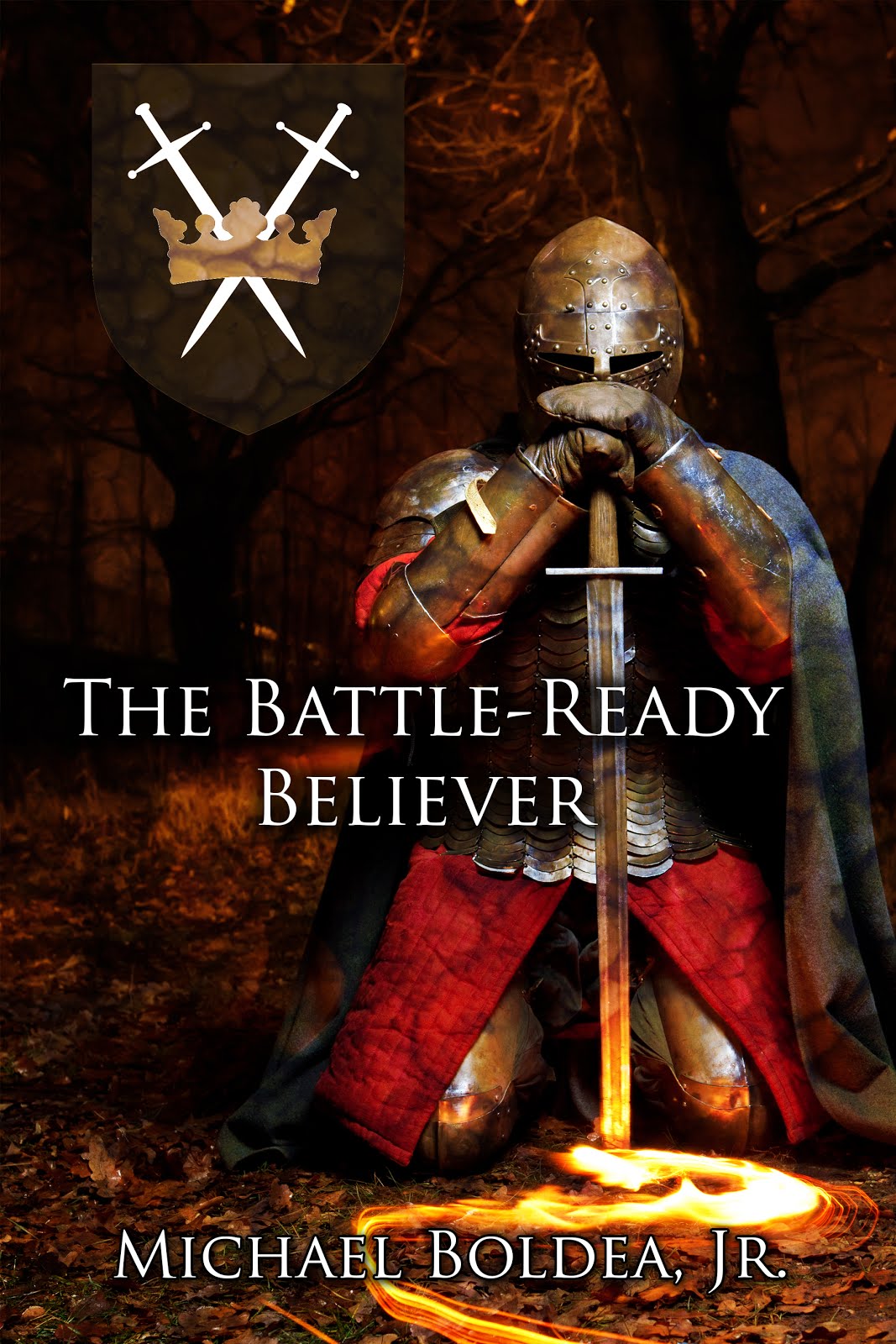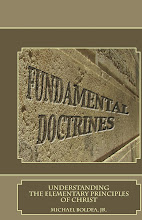So what are we to do? How are we to prepare? How are we to
confront the darkness? Brass tacks, no fluff, simple, straightforward, actionable,
but most of all effective. Effectiveness, I believe, is most essential,
followed closely by practicality. This is why the guy who invented the ice
scraper for car windows became a multi-millionaire, and the guy who invented
the fifteen step surefire way to defrost your windows died broke.
The following list is in no particular order, but once
employed, these practical means of warfare are thoroughly effective to not only
combat the enemy but beat back the darkness.
1. Live Righteousness
We all know the wretched stench hypocrisy leaves in its wake,
but living righteousness and not merely extolling its virtues goes far beyond
you not being a hypocrite. Righteousness is your uniform. When you are clothed
in righteousness, then you innately understand that others who are likewise
clothed in righteousness are your brothers in arms, and fellow soldiers in the
fight.
It is also how you can discern if someone does not belong on
the battlefield, or worse if they are attempting to infiltrate the ranks to
undermine the objective of the mission.
Righteousness is also your last line of defense against the
slings and arrows of the enemy. If an arrow somehow gets past your shield, the
breastplate of righteousness is there to keep it from causing harm, or worse.
When we live righteousness, we are clothed in it, imbued with
it, and protected by it. It’s not an options package you can beg off because
you think the price is high; it is a prerequisite for the effective warrior and
a necessity for anyone that wants to make war against the darkness.
2. Speak Boldly
You are not a politician, so don’t speak like a politician.
Your duty as a soldier of the cross is not to pander, pacify, placate, play to,
or otherwise adopt an inoffensive position. Your duty as a soldier of the cross
is to boldly proclaim the name of Christ, and speak the truth without
reservation or hesitation.
Call sin by its name, call deception by its name, and don’t
be double-tongued, or mealy-mouthed about it. We have become so averse to
boldness, and to someone speaking boldly, that when we hear it, we don’t know
how to react to it. Some scoff, some rage, some rejoice, but speaking boldly
will elicit a reaction.
When it comes to Biblical absolutes or salvific issues, there
is no room for the Socratic method, there is no room for give and take, nor is
there room for personal opinion or feelings.
We see where compromise has gotten is. We see where trying to
please everyone all the time at the expense of truth has gotten us, and we can
all agree it’s not working. The devil is good at framing narratives, and if he
senses weakness, if he senses a tendency to compromise the truth, he will pounce
on the opportunity with all the vigor of the bloodthirsty fiend that he is.
Don’t leave the enemy any room to paint you into a corner, or
force you into making concessions that ought never to be made.
This is what the Book says, my opinion mirrors that which the
Book says, and if you have any objections, feel free to argue with God.
3. Act Decisively
Most decisions in life are binary. Up or down, left or right,
pizza or fried chicken. Most decisions in our spiritual walk are likewise
binary. We either choose to submit, or we don’t, we either choose to obey, or
we don’t, we either choose to be faithful, or we don’t. The nuances, real or
imagined, are tertiary, and I do not believe anything we can come up with to
justify doing something we know clearly we ought not to have done will hold
water when we stand before the great white throne of judgment.
One of the biggest problems within Christendom today is that,
for the most part, we no longer act decisively. We have to weigh our options,
look at every angle, see which position will benefit us in the long run,
determine whether it will be a net benefit, then, finally, after protracted
analysis, we act.
Unfortunately, by this time, the action we undertake is more
apt to be self-serving than in service to the Kingdom. Is it right or wrong? Is
it the truth, or is it a lie? Determine the answer, then act accordingly.
If someone showed me a transcript of one of my sermons before
I was to deliver it, there is a very good chance I would likely wince in a
couple of places, or at least acknowledge that a certain point or reference
might not go over well. This is why I trust the guidance of the Spirit and
speak what I am given, without preamble or forethought of how it will be
received.
4. Fight Fearlessly
You are on the side of truth; fight like it. You are on the
side of right; fight like it. You are on the side of God; fight like it. Fight
like you’re fighting for something worth fighting for. No fear, no hesitation,
no retreat, no surrender. When will we reacquaint ourselves with the mindset of
a victor rather than that of the vanquished? When will we walk in the authority
rightly ours, and use the weapons afforded us by our King to make war against
the darkness?
It's sad to see that the threat of intimidation has silenced
much of today’s church. What will it do when persecution comes? If you are not
willing to be a fearless warrior, then it’s time to stop pretending, it’s time
to stop playing games, and reacquaint yourself with who you are in Christ
Jesus.
5. Pray Ceaselessly
What is it that you are lacking? Is it boldness? Is it courage?
is it faith? Is it strength? Is it discernment? Is it power? Whatever it is, go
to the Father and ask for a double portion. We cannot claim to know God if we
spend no time in His presence. We cannot claim to have received clear direction
when we have not been in contact with our Commanding Office since long before
the battle began. Prayer feeds you, nourishes you, anchors you, and strengthens
you. Every servant whose name is whispered in hushed, reverent tones was a man
of prayer, and I cannot think of one whose service is memorable that was not.
More could be said, perhaps more needs to be said, but for a
morning snack, this ought to suffice. As my grandfather was fond was saying, do
the work; it’s the only way the work is going to get done.
With love in Christ,
Michael Boldea Jr.









